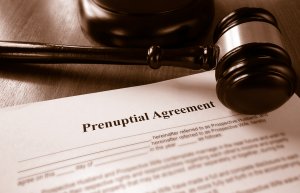Does Divorce Jurisdiction Matter?

Contact
Table of Contents
Jurisdiction in divorce
I am a family law practitioner with a large client following in England and in Gibraltar. I often have to deal with issues concerning international jurisdictions which requires making a decision early on as to the Country which is the more advantageous for my client to initiate Divorce proceedings.
What is divorce jurisdiction, and why is it important?
Separating couples who have multiple nationalities and / or domiciles or residential qualifications in different countries may have a choice as to where they Divorce. This is known as the “forum” or “jurisdiction” of the divorce. Since each country has its own divorce laws, the choice of forum can tremendously affect how long the divorce takes, what assets each party walks away with at the end as well as decisions regarding arrangements for children. These situations require quick and effective advice to secure the most appropriate jurisdiction. Not to do so can have seriously detrimental repercussions as to the outcome.
The rules governing jurisdiction (i.e. whether the court in a particular Country has the power to deal with a matter and whether Divorce proceedings can thereby be issued) vary from Country to Country and so legal advice must be taken promptly in each jurisdiction to establish this. Throughout my more than 30 years of practice, I have developed strong relationships with a network of overseas lawyers with whom my clients can consult in order to establish the legal position in the relevant jurisdiction. We act immediately to identify what is in our client’s best interests and ensure that those interests are protected.
- Read our blog post: Do You Have to Divorce in the Country Where You Married?
Is England/Wales the Right Jurisdiction for Your Divorce?
Because it is so important, we first consider jurisdiction when a new client comes to us. This is to ensure that:
- They have the right to get divorced in England and Wales, and
- England and Wales is the right place for them to get divorced when there are multiple jurisdictions at play.
When it comes to getting divorced, London has a lot of attraction for individuals coming from overseas; where it is often referred to as the “divorce capital of the world” because judges here have more discretion than in other countries, and settlements tend to be more favourable to the financially weaker party.
In the same way the financially stronger party will seek to try and avoid a Divorce Application being issued in England. It is therefore vital to act expeditiously from the outset. The parties need to be fully aware and appraised from the beginning and should not make the mistake of assuming that their spouse would never involve another jurisdiction. Complacency can be costly.
Throughout my more than 30 years of practice, I have developed strong relationships with a network of overseas lawyers with whom my clients can consult in order to establish the legal position in the relevant jurisdiction. We act immediately to identify what is in our client’s best interests and ensure that those interests are protected.
But what are the conditions that make it possible for a couple to get divorced in England, and why might you opt for an English divorce when you have a choice of jurisdiction?
Who can get divorced in England/Wales?
Regardless of your nationality and where you got married, you can apply for a divorce in England and Wales if at least one of the conditions is satisfied:
- Both spouses are habitual residents of England and Wales.
- Both of you were habitual residents as a couple here, and one of you still lives here.
- You want to start a divorce, and your spouse is habitually resident in England and Wales.
- You want to start a divorce and have lived in England and Wales for at least 12 months.
- You want to start a divorce, have lived here for 6 months, and are also domiciled here.
- Both spouses are domiciled in England and Wales.
“Domicile” is a technical legal term. Broadly, your domicile is the place you consider home and to which you intend to return. Everyone has a domicile of origin – the country in which your father was domiciled when you were born. For example, if you were born in Saudi Arabia, but your father was domiciled in England, then your domicile of origin would be England. However, changing your domicile by permanently moving to another country and severing all ties with your domicile of origin is possible. This is called domicile of choice.
“Habitual residence” is less complicated; it’s simply where you live when your divorce proceedings start. For couples with a global footprint, the court will look at your “centre of interests” when deciding where you live most regularly, such as where you have community ties and where your children go to school.
Why might you choose to get divorced in England/Wales?
A number of factors have helped London gain its “divorce capital” title. These include:
- A well-defined legal system that attempts to resolve issues in a non-confrontational way.
- No-fault divorce rules, which means it is not necessary to establish the grounds for divorce.
- Decisions regarding the division of finances are based on fairness and equity, and the court favours the financially weaker party by taking a 50/50 split of assets as its starting point – homemakers and breadwinners are treated equally.
- There is no assumption that spousal maintenance will not be paid or will only be paid for a short duration.
- Pre-nuptial agreements are more likely to be recognised by English/Welsh courts than in some other jurisdictions.
- Pre-acquired assets are not automatically ringfenced in the England/Wales
- It is often quicker to get divorced in England/Wales than in other countries, although this will depend on the complexity of the case.
All assets are on the table in an English divorce, not just the assets you acquired during the marriage. Parties are required to make full and frank disclosure of all of their worldwide assets, and the courts have wide discretion to re-distribute those assets to achieve a fair outcome. For example, they might order the transfer of property anywhere in the world, the sharing of a pension, or the payment of monthly maintenance payments potentially up until the death of either party.
Other countries may take a different, potentially less generous view when dividing assets, pensions and investments and making spousal maintenance awards. The jurisdiction that is secured can mean a dramatically different divorce settlement.
Disputes over jurisdiction
Once you file for divorce, the choice of jurisdiction becomes set in stone. It’s critical to get the right advice as soon as possible; otherwise, you might lose the race to select the most advantageous jurisdiction.
Disputes as to jurisdiction can be costly and lengthy. This is especially so when each party has started divorce proceedings in a different Country each having their own vested interest in pursuing the relevant jurisdiction. The parties will need to weigh up the merits of their case as against the legal fees they could be facing. Nonetheless the cost of securing the jurisdiction of choice can achieve a substantial saving in respect of the ultimate financial award.
Although it is the case that since Brexit the country in which proceedings first are issued is not conclusive of where the Divorce will happen it still remains a very important factor in deciding between any competing jurisdictions.
Overturning a divorce ruling from another jurisdiction
If the actual Divorce has proceeded in an overseas jurisdiction it is possible in some circumstances to apply to the English Court for a further financial award if the provision made by the foreign Court is considered to be unacceptably inadequate. That is however more difficult as between England and decisions of the courts of the EU.
The best advice is to speak to a solicitor as soon as possible. They can determine if you are eligible for a divorce based in England and Wales and whether it’s the right forum for you. The decision is not only based on the potential value of the settlement but also on other factors, such as how difficult it will be to locate, transfer or sell assets that are located overseas. Enforcing an English divorce settlement through a foreign court can be costly and time-consuming – a solicitor can provide the necessary guidance.
Talk to our expert divorce solicitors
Go to our divorce pages for more information on how we can assist you in your divorce. You can also look through our family law pages to see all our other services. To speak with one of our divorce solicitors, contact us by:
- Filling in our online enquiry form; or
- Calling us on 020 7485 8811
Share this article
Contact us today
Call us 020 7485 8811
Email us Send us an email and we’ll get back to you
Related InsightsVIEW ALL
- 27.8.2024
Pension Sharing Orders
Pension Sharing in Divorce With so many things to consider when dividing up your finances during a divorce or dissolution...
Read more - 4.12.2023
My spouse is going bankrupt. Will it affect...
Divorce and Bankruptcy In 2022, more than 1 in 10 businesses reported a moderate-to-severe risk of insolvency. More than one in five (22%) of...
Read more - 22.3.2023
Breadwinner or homemaker in divorce. Does it matter?
Breadwinner vs Housewife Divorce Rights When it comes to deciding how wealth is split in a divorce, English courts do...
Read more - 22.3.2023
What is Parental Responsibility?
Understanding Parental Responsibility Parental responsibility is the legal term used to describe parents’ duties and responsibilities for their children. These...
Read more - 16.3.2023
Are trusts protected from divorce?
Can trusts protect an inheritance from your spouse? A trust is a separate legal entity. Neither spouse owns its assets....
Read more - 16.3.2023
Is a limited company protected from divorce?
Is my spouse entitled to half of my business? If you are involved in running a limited company, then it...
Read more - 16.3.2023
How is a pension split in a divorce?
Pensions and Divorce In a divorce, pensions are taken into account together with all other financial assets. Once all assets...
Read more - 16.3.2023
Who gets the house in a divorce?
How is a house divided in a UK divorce? For most people thinking about getting a divorce, one of the...
Read more - 7.12.2022
IR v OR: Judge Dismisses Pre-Nup in Landmark £184...
One of the reasons I am still passionate about family law, after 20 years in the field, is that it is...
Read more - 30.8.2022
What is a transfer of equity?
Transfer of equity in divorce Transfer of equity refers to the process of transferring part or all of a property...
Read more - 30.8.2022
Do You Have To Go To Court For...
Can you divorce without going to court? If your divorce is uncontested and there are no disputes over issues such...
Read more - 22.8.2022
Capital Gains Tax on Divorce
CGT Changes Could Reduce Stress for Divorcing Couples The government has proposed a number of changes to the capital gains...
Read more - 6.5.2022
My Spouse Has Cut Me Off During Divorce
Can my spouse cut me off financially? Unfortunately, it is far too common that when clients say it’s over,...
Read more - 6.5.2022
How the Court views loans from parents during...
A frequent issue in financial divorce cases is a loan from a spouse’s parent, often to pay legal fees,...
Read more - 5.5.2022
Mesher Orders Explained
What is a Mesher order? A Mesher Order allows the sale of the family home to be postponed in the...
Read more - 11.4.2022
Financial Dispute Resolution (FDR) for Divorce
What is FDR for Divorce? Traditionally, a divorce financial settlement is dealt with by mutual agreement between the parties or...
Read more - 31.3.2022
10 Interesting Facts About Same Sex Marriage and Divorce
Eight years after same-sex marriage was written into law, we’re looking at these major life events by the numbers. 1....
Read more - 28.2.2022
Decree Nisi
Update: With the introduction of no-fault divorce in April 2022, a Decree Nisi became a Conditional Order, and a decree absolute...
Read more - 18.1.2022
6 cases that shape a private children dispute
Family disputes involving children can be particularly emotive, which is why our expert children lawyers work tirelessly to understand how...
Read more - 9.12.2021
Are irreconcilable differences grounds for divorce?
If you have come across this article, it may have resulted from an online search to see if you and...
Read more - 16.11.2021
Uncovering hidden assets in your divorce
Hiding Assets During a Divorce As part of your divorce, you and your ex will have to agree on dividing...
Read more - 10.11.2021
Difference between Decree Nisi and Decree Absolute
Update: With the introduction of no-fault divorce in April 2022, a Decree Nisi became a Conditional Order, and a decree absolute...
Read more - 9.11.2021
Keeping social media out of divorce proceedings
We’ve recently seen the playing out on Twitter and Instagram of the high-profile separation of actor Ioan Gruffudd and...
Read more - 9.11.2021
Case Law for Fair Divorce Settlements
Cases that shape a ‘fair’ divorce settlement Part of what makes our divorce lawyers experts in their field is knowing...
Read more
























